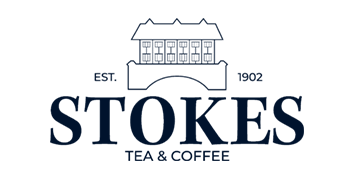
Advancing Sustainability in the Hospitality Industry
Summer is in full swing, and many people are putting aside their responsibilities for a short while to enjoy their much-anticipated holidays. This places significant pressure on and directly impacts the hospitality industry, which experiences a boom in custom as increasing numbers of people visit hotels, restaurants, cafes, bars and other tourist hot-spots.
In this blog, we explore how hospitality providers can advance their sustainability and gain better visibility of their environmental impact by using specialist software designed to calculate, track and collate key emissions.
From sourcing essential ingredients through to the emissions generated from restaurants and hotels –the production and consumption of food have a significant carbon footprint.
The hospitality sector, for example, is responsible for up to 15% of greenhouse gas emissions in the UK with a large portion of these emissions attributable to the supply chain.[1]
Whilst many operators are committed to acting through methods such as carbon offsetting, the Sustainable Restaurant Association estimates that two-thirds of all emissions in hospitality come from activities not owned or controlled by the business. These are also known as Scope 3 emissions, which are renowned for being the most challenging to calculate and report on.
To find out more about Scope emissions and SECR reporting, check out our blog here.
The hospitality industry has a complex relationship with the environment.
It simultaneously relies on and contributes to the degradation of the environment, including the depletion of natural resources such as water, energy and forests – all while generating waste.[2]
It’s also important to highlight that just as the hospitality industry impacts the environment and contributes to climate change, the latter has a direct knock-on effect on the hospitality industry, too!
Extreme weather, for example, is increasing the cost of operations and reducing the number of tourists visiting certain destinations, while concerns around individual carbon footprint are prompting many people to be more mindful about where and how they travel.
It’s therefore essential that the hospitality industry effectively identifies and implements sustainable practices to avoid destroying the resources it depends on.
You can’t change what you can’t measure – and measuring and reporting on key emissions are the foundation of sustainable change. Getting accurate data on shows which areas of a business are the biggest emitters – and by proxy, doing the most environmental damage. This can help hospitality businesses make an effective plan for improvement.
Whilst Scope 1 and 3 emissions are more straightforward, Scope 3 emissions are complicated and are notorious for being difficult to monitor, measure and report on.
However – as they can account for anything from around 50% to 80%+ of emissions for a hospitality company, it’s essential that they are kept under control!
Having access to Scope 3 data is invaluable for business owners working within the hospitality sector. It comprises the essential information needed to identify the main areas of unsustainability in the supply chain.
Accurately measuring Scope 3 emissions enables business owners to monitor and track their environmental progress. This can help them to plan and achieve specific sustainability goals such as net zero more easily.
The challenges to measuring scope 3 emissions include reliance on value chain partners, poor data quality and data gaps. As this scope encompasses emissions outside a business’s immediate operations, they are inherently more difficult to capture. Gathering accurate data depends on the contributions of and engagement with other, third-party suppliers – many of whom may not measure their own emissions.
So, how do we overcome this challenge?
There are several solutions available on the market that can be used to gather data and improve sustainability in the hospitality industry.
This includes specialist software that has been designed to streamline the reporting process by automatically collecting and calculating data, such as AXIOM’s supply chains emissions calculator.
Measuring and reporting on emissions manually can be exceedingly difficult – so it’s essential that operators have the right technology in place. It offers a more centralised and reliable way of measuring the environmental impact of both a business’s operations – and that of its suppliers.
This type of technology equips operators with the vital data and information needed to inform future decision-making. It makes implementing sustainability that little bit easier, which is valuable in a time when there is increased pressure on businesses to deliver on specific environmental goals.
Founded by a team of procurement and sustainability specialists with a passion for saving the planet – AXIOM provides a firm foundation for sustainable transformation.
AXIOM is the complete platform for measuring, tracking and reporting the sustainability performance of your organisation and can help your business seamlessly take its green credentials to the next level.
To find out more, or to book your free demo – please get in touch here.
[1] https://www.foodmadegood.org/the-issues/reducing-emissions/#:~:text=The%20hospitality%20sector%20is%20responsible,can%20feel%20intangible%20and%20unachievable.


Want to know more? Please get in contact with our team here.
Contact Us